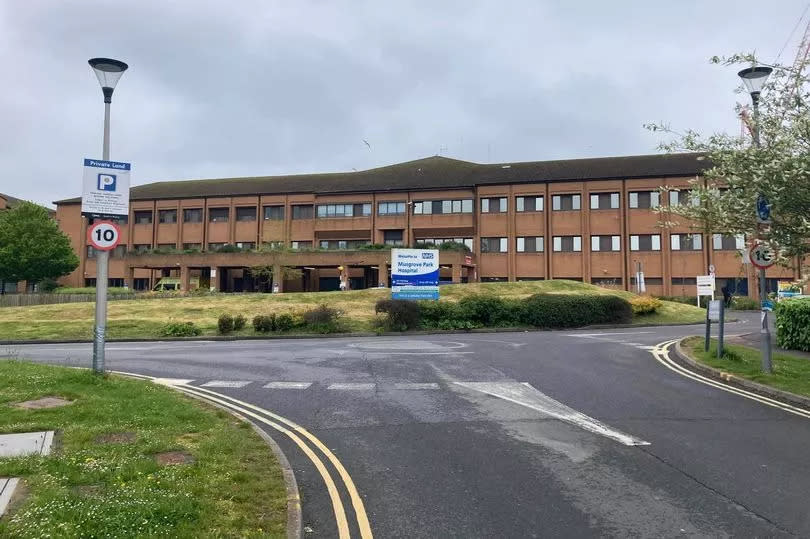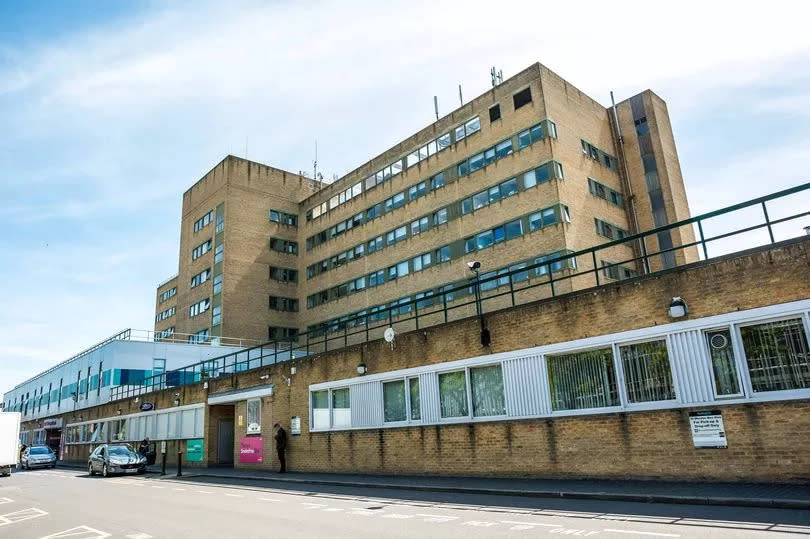Somerset maternity services 'inadequate' and slammed by health inspectors
Somerset's maternity services have been slammed by health inspectors for having too few staff and not enough equipment to look after mothers and their newborn babies.
The Care Quality Commission (CQC) carried out inspections in November 2023 of maternity units at three major Somerset hospitals - Musgrove Park Hospital in Taunton, Yeovil Hospital and the Mary Stanley unit at Bridgwater Community Hospital.
The inspectors have told the Somerset NHS Foundation Trust (which runs all three sites) to make massive improvements to protect patients, with both Musgrove and Yeovil's provision being rated 'inadequate'. The trust stated on Friday (May 10) that it had made significant improvements since the inspections were carried out and that further enhancements would be carried out in the coming months.
Read More - Two Somerset beaches among England's dirtiest awarded 'Brown Flag'
Read More - Bath city centre getting transformed as major development on car park approved
What did the CQC say?
While the CQC inspections were carried out in November 2023, they were not made public until Friday morning (May 10). Deputy director of secondary and specialist care Carolyn Jenkinson said: "When we inspected maternity services at the Somerset NHS Foundation Trust, we found a deterioration in the quality of care being provided across maternity services at all three of the locations they provide them from.
"We also had particularly significant concerns with the care being provided at Musgrove Park Hospital and Yeovil Hospital. We have told the trust where we expect to see significant improvements and will continue to monitor them closely while these improvements are made.
"We will return to check on their progress and won’t hesitate to take action if women, people using the service and their babies are not receiving the care they have a right to expect."
What has gone wrong at Musgrove?

At Musgrove Park Hospital, inspectors found the following problems:
Staff weren’t always completing mandatory training or meeting the trust’s targets for training, and leaders lacked good management of this issue. Gaps included training to manage when unborn babies had reduced movements, managing when unborn babies had growth restrictions, and safeguarding training to identify and protect people from abuse
The service did not control infection risk well and the environment was unsuitable - for instance, inspectors found single use emergency equipment out of its packaging and medical equipment that was out of date and coated in dust
There was a lack of emergency equipment across the service - including not enough equipment to resuscitate babies in an emergency. Inspectors also found one of their current resuscitation machines for babies had a broken wheel and was unusable
There wasn’t always enough midwifery staff to keep people safe
Fridge temperatures weren’t always monitored, and the contents weren’t always checked, with inspectors finding expired breast milk in one fridge. The trust said it was aware of issues with the current fridges and freezers, but there was no mitigation plan in place before they could replace them
Staff couldn’t access up-to-date policies and procedures to support them in their roles.
The inspectors did find, however, that the service "engaged well with the local community to make improvements and plan services", and that "staff had a positive work culture and were committed to improving the service".
What problems have beset Yeovil Hospital's maternity unit?

At Yeovil Hospital, inspectors identified the following issues:
There was not enough emergency equipment to safely care for babies (though this was swiftly rectified following the inspection)
The service did not always control infection risk well. Not all staff adhered to hand hygiene principles when entering clinical areas prior to administering care, and audits were not used to monitor hand hygiene and cleaning at the service
The service did not always have enough medical staff, such as consultants, to keep people safe
Leaders didn’t have effective governance systems to manage risks, issues, and how the service performed
Staff hadn’t all completed necessary training to protect women and people using the service from abuse
There was a lack of meaningful conversations and information regarding maternity services at executive board level
However, the CQC did note that "staff worked well together as a team" to cover areas where women and people using the service needed support, and that the service "engaged well with the local community to make improvements and plan services".
What problems does Bridgwater Community Hospital have?
At Bridgwater Community Hospital, inspectors found the following problems:
Leaders weren’t monitoring waiting times to ensure people could access emergency services when needed and if they received treatment within national targets
Equipment was not always maintained safely - for instance, much of the electrical equipment was overdue safety tests, meaning there was a risk that staff could use faulty equipment or that equipment posed a fire risk
Leaders didn’t have effective governance systems to manage risk, issues, and how the service performed. - meaning lessons weren’t always learnt following incidents
The birth centre did not have a vision or strategy and there was a limited approach to engagement with local people about their services.
In mitigation, the CQC noted the staff had training in key skills and worked well together for the benefit of women, people using the service and their families. The staff, in their views, also understood how to protect people from abuse, and managed safety well.
How has the trust responded?
Peter Lewis, chief executive of the Somerset NHS Foundation Trust, has issued a formal apology following the reports and has promised patients that everything possible would be done to improve the services. He said: "These reports illustrate that we have fallen short of the standards we expected to be delivering, and we want to say sorry to our families that use these services and to our hard-working colleagues.
"We are committed to improve, so that we provide an excellent service that supports women, birthing people, and families in Somerset. We have made significant changes since the inspection and will continue to do so. We have strengthened our processes to provide ongoing review of quality, performance and governance, including developing a strong audit and policy programme to drive continual improvements in our services.
"All guidance and policies that were highlighted have been reviewed and updated, and we have increased scrutiny and governance around our policy processes, ensuring these are available to all colleagues. We have reviewed and mapped all mandatory training, strengthened our oversight, and significantly improved our compliance."
Regarding the specific issues at Musgrove, Mr Lewis said new triaging processes had been put in place to "prioritise care based on clinical need", and the ward had been reconfigured to make it safer. He said: "The report for Musgrove’s maternity service highlights issues that are as a result of the poor condition of the building.
"We are planning to replace this as part of the national new hospitals programme, but have already made improvements specifically around safety and security. The inspectors noted an open culture, good engagement with local communities to make improvements and plan services, good team working, and that colleagues felt valued and supported.
"We have a lot of work to do, but this does give us good foundations on which to build. We are here to support all those using our maternity services.
"If you have any questions, or concerns, would like more information, or to speak to someone about our service, please speak to your midwife. We are here to help and support you."

 Yahoo News
Yahoo News 
